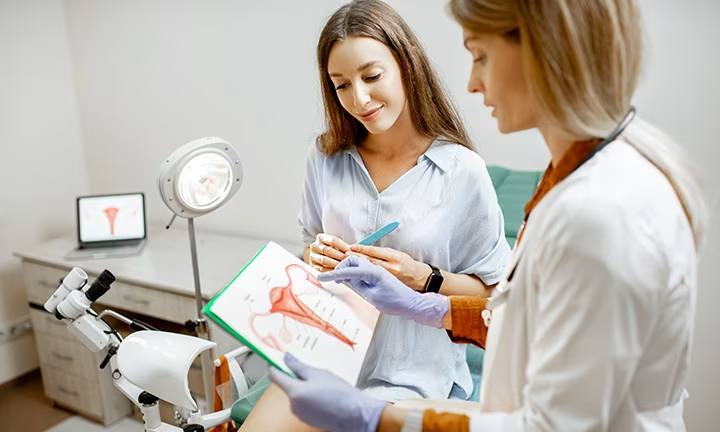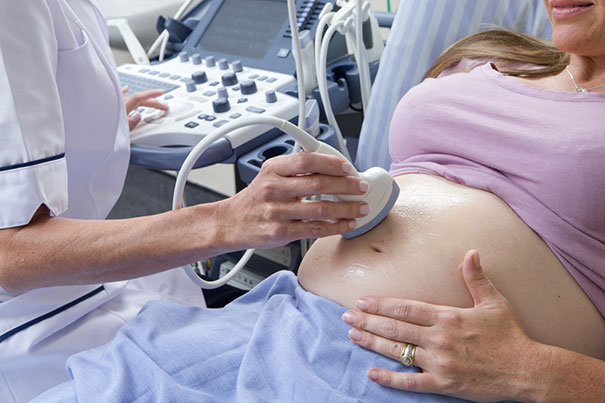
OBGYN, Midwife & More: Meet Your Antenatal Care Team
Pregnancy is a time filled with excitement, anticipation and also a fair amount of anxiety. Luckily you're not alone – you’ll have an antenatal team looking after you to make sure that everything goes as smoothly as possible. Read on for a quick introduction to the healthcare professionals that you might come into contact with during your pregnancy, such as the midwife, obstetrician/gynaecologist and others.
What Is Antenatal Care?
Antenatal means “before birth”, so antenatal care refers to the medical care that mums-to-be receive throughout their pregnancy, up to and including the time of labour and childbirth.
This includes routine tests and procedures such as ultrasound scans, to check the development of the baby and identify any potential issues. Your healthcare team will also provide support and advice on preparing for childbirth and caring for your baby after delivery.
Besides monitoring your health and your foetus’s development, your antenatal team can give you advice on other aspects such as diet, exercise and any lifestyle changes that might help ensure a healthy pregnancy.
Your antenatal care team might include
What Does an Obstetrician and Gynaecologist Do?
An obstetrician and gynaecologist (sometimes shortened to O&G or OBGYN) is a doctor who specialises in women’s health, pregnancy, labour and birth, as well as postnatal care.
Although in many cases you will usually only meet with the midwife, the obstetrician may be involved if there are any risk factors or possible complications, such as:
The obstetrician will work closely with your midwife and other members of your antenatal care team to make sure you receive the support you need to ensure that you and your little one remain safe and healthy.
Even if your pregnancy is considered low-risk, unexpected complications can arise, for example premature labour or the need for an emergency caesarean section. In such cases, the obstetrician will take charge of managing the situation to ensure the best possible outcome for you and your baby.
Is an OBGYN the same as a Gynaecologist?
Although many gynaecologists are also obstetricians, gynaecology and obstetrics are two different (but closely related) fields of healthcare. A gynaecologist is concerned with women’s health in general, while an obstetrician specialises in pregnancy and childbirth.
What Is the Role of a Midwife?
If your pregnancy is straightforward with a low risk of complications, you’ll be cared for by a midwife both during your pregnancy and at birth.
A midwife specialises in caring for mothers and babies during pregnancy, labour and for a short period after your baby is born.
Your midwife is usually the first person that needs to be notified that you’re pregnant, in order to start your antenatal care. To do this, you can book an appointment with your midwife directly or through your GP.
To find a midwife, ask at your GP’s surgery or contact your local Children’s Centre, run by your local council. You’ll be assigned a midwife who’s responsible for your antenatal care, and whose name will be written in your pregnancy notes.
When Will You Meet the Different Members of Your Antenatal Care Team?
Precisely which members of your antenatal team you’ll be in contact with, and when, depends on your individual situation. No two pregnancies, or mums-to-be are the same, but here’s a rough guide to some of the key stages of your antenatal care.
Antenatal Appointments
Usually, most antenatal care takes place at antenatal appointments scheduled for you by your midwife or GP. The number of these appointments you’ll have throughout your pregnancy usually varies between 7 and 10, depending on whether it’s your first pregnancy or not.
Your antenatal appointments may be held at
At your first appointment your midwife, GP or obstetrician will perform some checks (such as a urine test and measuring your blood pressure) and ask some questions to determine how likely you are to encounter complications during your pregnancy.
At the following appointments your antenatal care team will monitor your progress and your foetus’s development. Your midwife can also talk to you about your preferences for how and where you’d like to give birth, and help you write a birth plan if you choose to have one.
Labour and Birth
If you have a straightforward birth it’s usually your midwife who will look after you during labour and deliver your baby. If complications or the need for extra care arises (or is expected) during labour, an obstetrician may also be involved.
The Postnatal Period
In the first few days or weeks after your baby is born, the midwife and/or obstetrician may continue to provide support and assistance as you get to know and learn how to care for your new arrival.
Some Other Members of Your Antenatal Care Team
Your antenatal care will be led by your midwife and/or obstetrician, but there are plenty of other professionals involved in monitoring you and your little one’s health and development. They’ll be working together closely to make sure you receive the support you need during your pregnancy and beyond.
The other members of your antenatal care team could include:
FAQS AT A GLANCE
Sometimes, but not always! Although gynaecologists may also practice obstetrics, not all of them are obstetricians. Obstetricians have specialised training in managing higher-risk pregnancies and complications during childbirth, while gynaecologists may specialise in other areas of women’s health.
The Bottom Line
Some pregnancies go more smoothly than others, but rest assured you’re in good hands! By getting to know your midwife, obstetrician and the other professionals making up your antenatal care team, and understanding the role that each member plays, you’ll be able to feel confident that you’re receiving the care and support you need to have the safest, healthiest pregnancy possible.
How we wrote this article The information in this article is based on the expert advice found in trusted medical and government sources, such as the National Health Service (NHS). The content on this page should not replace professional medical advice. Always consult medical professionals for full diagnosis and treatment.
- https://www.nhs.uk/pregnancy/your-pregnancy-care/antenatal-support-meet-the-team/
- https://www.nhs.uk/pregnancy/your-pregnancy-care/your-antenatal-care/
- https://www.healthcareers.nhs.uk/explore-roles/doctors/roles-doctors/obstetrics-and-gynaecology/obstetrics-and-gynaecology
- https://www.nhs.uk/pregnancy/your-pregnancy-care/your-antenatal-appointments/
- https://www.nhs.uk/pregnancy/your-pregnancy-care/ultrasound-scans/
- https://www.nhs.uk/conditions/gestational-diabetes/











